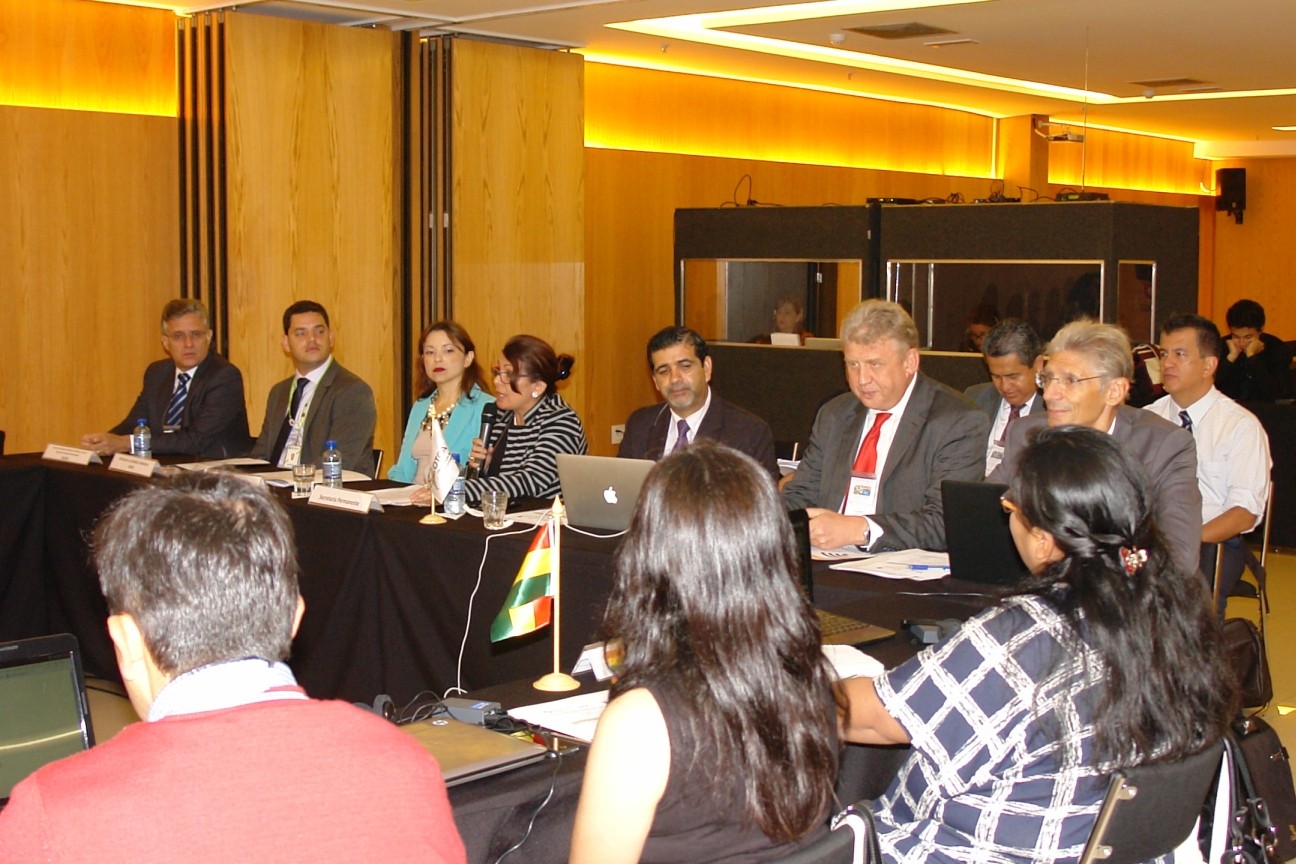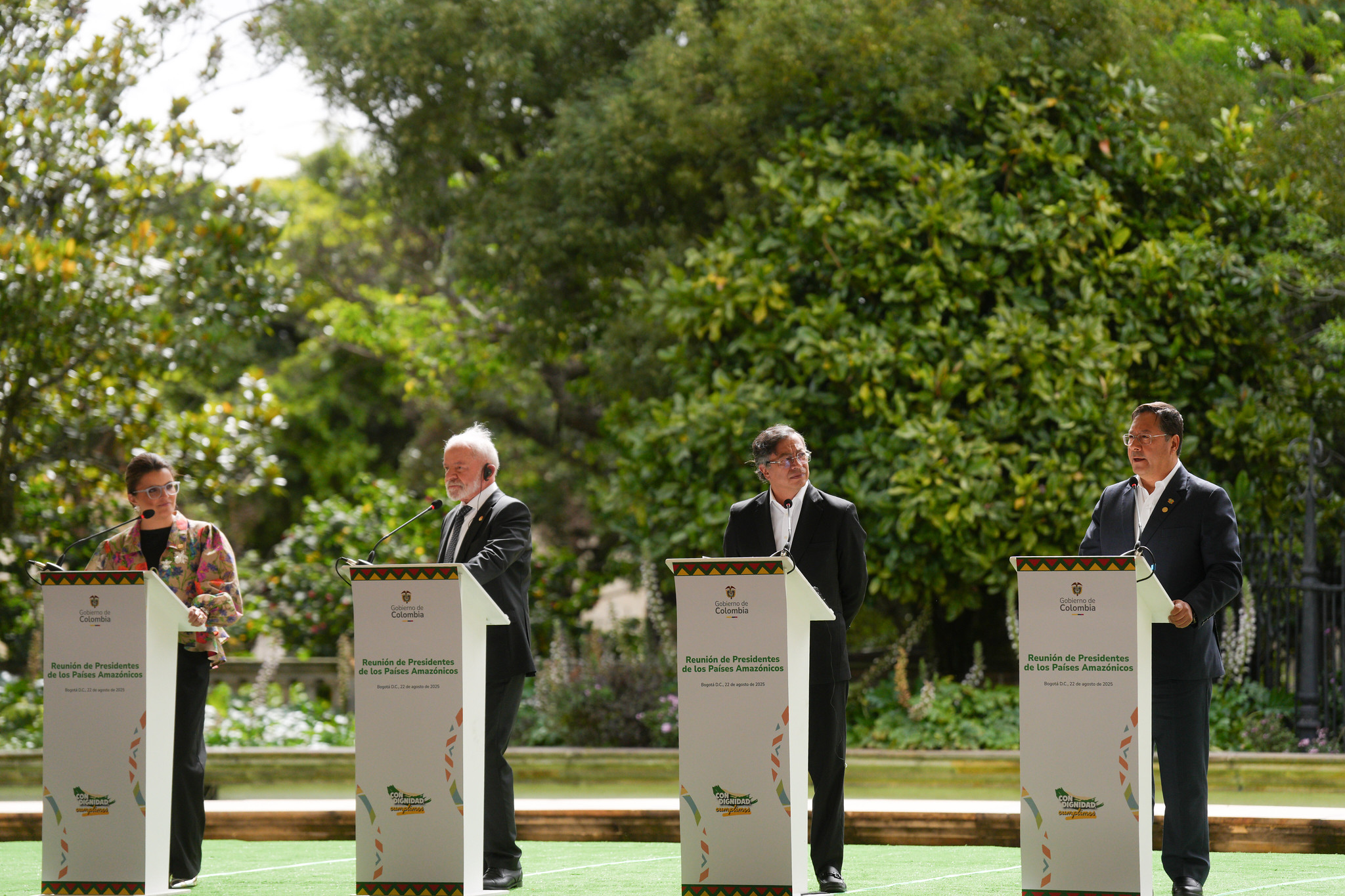The opening ceremony was attended by the representative of the Ministry of Foreign Affairs, Ana Beatriz Nogueira; of the Ministry of the Environment, Ugo Eichier Vercillio; of the IBAMA / CITES Authority, João Pessoa Riograndense; the Secretary General of the ACTO, Ambassador María Jacqueline Mendoza; the Director of the Office of the German Development Bank (KfW) in Brazil, Carsten Sandhop and the representative of the General Secretariat of the Convention on International Trade in Endangered Species of Wild Fauna and Flora (CITES), John E. Scanlon, via videoconference.
During the workshop, the Execution Unit presented the implementation strategies of the project, the logical framework approach, the detailed study and components, the manual and the operational plans. Furthermore, the delegates of the ACTO Member Countries presented and discussed the status and implications of each component.
After discussions, participants reached a number of conclusions and recommendations to the Steering Committee, including that in the Amazon region there are many opportunities for the development of new technologies of information, communication and for their compatibility and interoperation, as well as the conditions for progress in development of electronic permitting processes and systems, a single window and other associated systems, harmonized with international standards and norms.
Likewise, delegates noted the need to promote the adoption of related legislation to facilitate and take advantage of opportunities for collaboration, synergies and coordination mechanisms with other regional initiatives, such as the development of the Regional Amazonian Observatory (ORA) or others related to the three components.
Participants also concluded that it is the right time for follow-up of the discussions held between CITES Members Counties and working groups on issues related to the electronic processes of the CITES, traceability ad related standards.
Meeting of the Steering Committee. “The First Meeting of the Steering Committee” was held on April 27, with participation of delegates of the ACTO Member Countries, representatives of the German Development Bank (KfW) and the PS/ACTO.
The meeting was chaired by Claudia Mello, representative of Brazilian Institute of Environment and Natural Renewable Resources (IBAMA); also welcomed the Secretary General of PS/ACTO, Ambassador María Jacqueline Mendoza, the Administrative Director of PS/ ACTO, Antonio Matamoros and the Director of the Office of the German Development Bank (KfW) in Brazil, Carsten Sandhop.
Important decisions were taken at this meeting regarding the functioning of the Steering Committee, such as the approval of its regulations and the adoption of the recommendations of the workshop.
Operational tools that guide overall strategy and implementation of the project, such as the Operational Manual of the Project (MOP), the General Operational Plan (POG), the Annual Operational Plan (POA) and the Procurement Plan (PAA), were also presented and adopted, as well as the Annual Financial Technical Report that includes the context, development and progress of the project implementation for the period from August 2016 to March 2017.
| KfW Project
The project aims to increase the efficiency and effectiveness of management, monitoring and control of wild fauna and flora species threatened by trade in ACTO Member Countries in order to contribute to the conservation of Amazonian Biodiversity and especially of species listed in CITES. In order to meet these objectives, it has three components: 1. National and regional information and knowledge management systems. 2. Regional harmonization and strengthening of national electronic permitting mechanisms/ systems /processes. 3. Strengthening sustainable management initiatives and traceability mechanisms for Amazonian species. |


